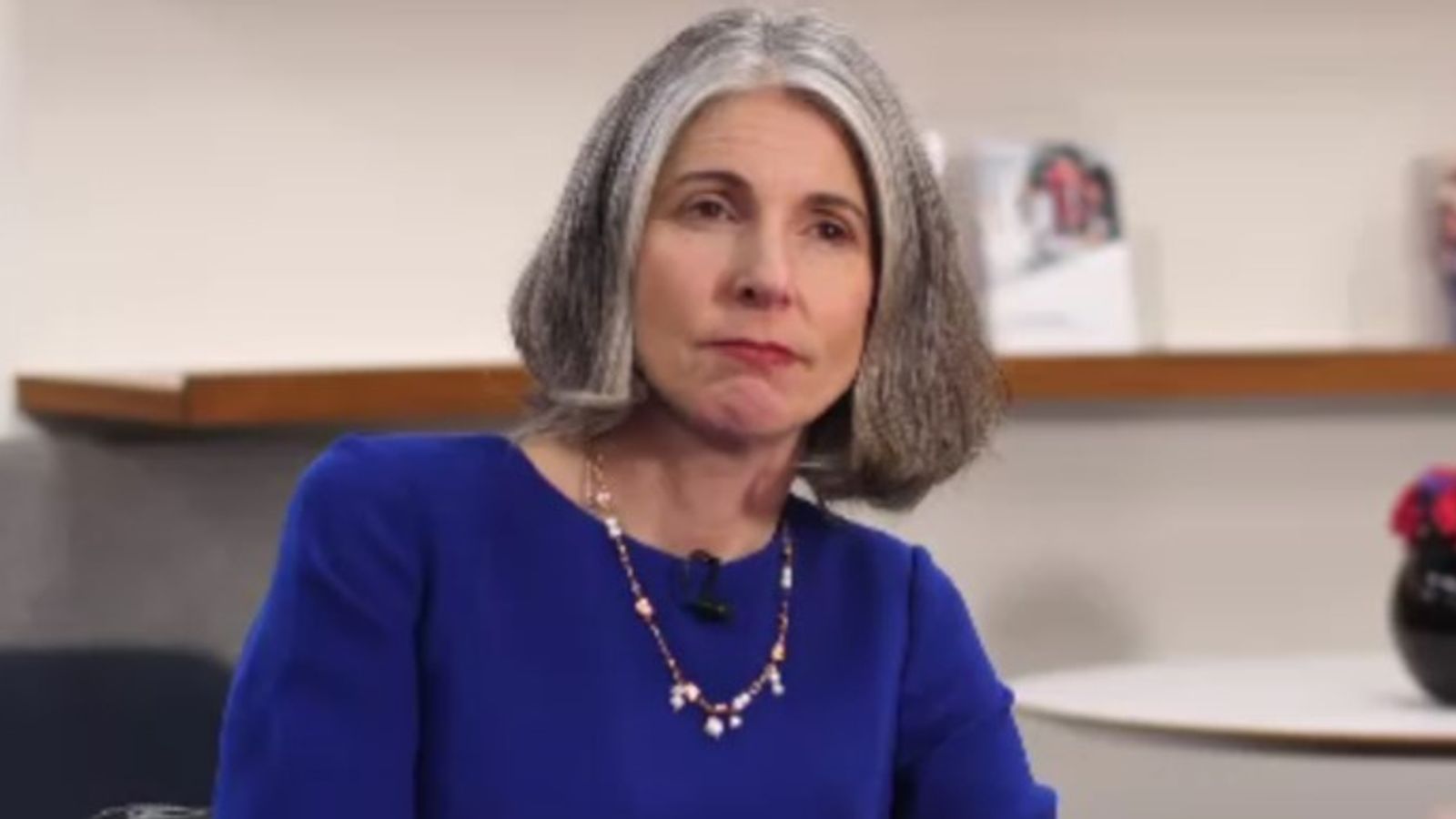New CBI boss ‘really confident’ business lobby group can survive scandal

The new boss of business lobby group the CBI says she is confident it will win back the trust of ministers and members within six months, but will have to “completely change” to survive allegations of sexual misconduct and a toxic culture.
Rain Newton-Smith started work as CBI director general this week with its future in doubt following allegations that two employees were raped by colleagues.
The claims prompted government and opposition parties to pause engagement with the organisation, and scores of major companies to end or suspend their membership, including Tesco, NatWest and John Lewis.
Speaking on her first day Ms Newton-Smith told Sky News: “I am really confident the CBI can survive. It’s not going to be the same CBI that we’ve seen over the past few weeks for sure, it’s not going to be the same organisation. We have to completely change and we will.
“I’m determined we’ll definitely be at that table in six months’ time and we need to be, because that’s what our members want from us, and we have to be able to have those conversations with government,” she said.
Ms Newton-Smith was appointed from a role at Barclays to replace former director general Tony Danker, who was sacked earlier this month following separate misconduct allegations.
Please use Chrome browser for a more accessible video player
2:43
CBI boss Tony Danker sacked
She previously served as the CBI’s chief economist for seven years, including the period when the most serious misconduct is alleged to have happened, but rejected concerns that made her unable to pursue reform.
“I think if I’ve ever seen wrongdoing, I’ve always addressed it. And if anyone’s come to me with any issues, I’ve always let their voice been heard, and I’ve acted on it.”
“When I was here, if people raised issues with me, I supported them.
Advertisement
“This is really challenging, the stories we have heard are so harrowing and everyone feels them really deeply. They’re shocking and they’re painful,” she said.
“There are many things [that] happened at some time while I was here, but I am determined that we don’t allow those things to happen again, and that voices and stories are heard and acted on.”
Following an external investigation by employment lawyers the CBI will adopt 35 recommendations to improve its employment culture.
Please use Chrome browser for a more accessible video player
1:57
Which companies have quit CBI?
Ms Newton-Smith said she would canvas members to hear what they wanted from the organisation in future to try to win back their trust.
She also said the organisation was “too hierarchical” and would work to address the structure to improve the culture for more staff, who she said, had been “broken” by the allegations.
Read more:
Once-distinguished and influential CBI has seen its reputation reduced to rubble
Which business have quit or suspended membership of the CBI?
“I think it starts with listening, right, and I think it starts with humility. What’s really hard coming into this job, as a leader, is I have to come into this job and I’ve got a staff who are broken, who’ve gone through a really, really terrible time.”
The crisis at the CBI has led some to question the viability of a group that represents 190,000 companies with disparate agendas.
Please use Chrome browser for a more accessible video player
2:54
CBI president acknowledges failures
This week the prime minister convened a meeting with 200 business leaders in London at which Chancellor Jeremy Hunt said that engaging with a voice for business was helpful, but added there was “no point” in talking to the CBI in its current turmoil.
Ms Newton-Smith pointed to the CBI’s role in facilitating the furlough scheme during COVID, and recent lobbying for business-friendly measures in the recent budget, as signs of its value, particularly going into an election.
Read more:
Fresh blow for CBI as City’s governing body turns its back
CBI chief sets out its ‘most grievous error’ in sexual misconduct scandal
“What we are focused on is, what does a brilliant business organisation look like that can stand toe-to-toe with the chancellor, the leader of the opposition, with the prime minister and tackle the big issues of the day?
“We have got a general election next year and business wants a strong voice to set out the case for what they want to see in those manifestos.
“And I haven’t seen another organisation that has over 100 economists, policy specialists across the whole spectrum, and knowledge that goes deep across the regions and the devolved nations in the UK.
“So I think the government will need us, I think they have acknowledged that in the past, and I think they will going forward.”